I have so many photos of butterflies that I can’t find time to process them, so with fewer Other Insects, I did them first! 🙂
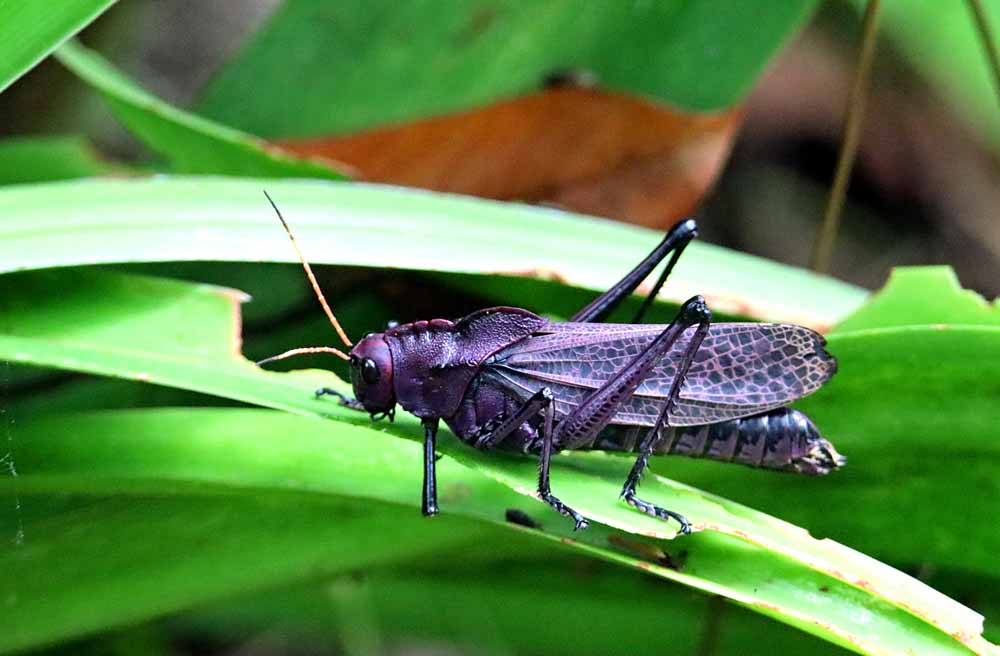
I have so many photos of butterflies that I can’t find time to process them, so with fewer Other Insects, I did them first! 🙂

Whether coming as a tourist or a local who visits national parks here, you might want to know that there are two entrances to Cahuita National Park. There is a “main entrance” in the little town of Cahuita where most people enter, including a lot of locals for the easily accessed beaches, coral reef for snorkeling, plus very good hiking trails both along the beach and through the interior rainforest. You can see my previous photos from 2 hikes at that main entrance in these galleries:
Now here’s just 4 shots of the “back door” hiking trail also called officially Sector Puerto Vargas, as basically a 2 km long boardwalk (or bridge) over land that is sometimes under water. It leads you through a beautiful second growth rainforest with lots of wildlife possibilities to a connection with the two trails from the main entrance, one along the beach and one through the forest for a one-way total of about 8 km (using 1 of the main entrance trails + boardwalk) if you go all the way! Me and my guide, Henis, settled for the 4 km round trip on the boardwalk 🙂 where I got my “lifer” bird photo of a Ruddy-tailed Flycatcher, photos of 14 Butterfly Species and some Other Wildlife! Plus these four general shots . . .
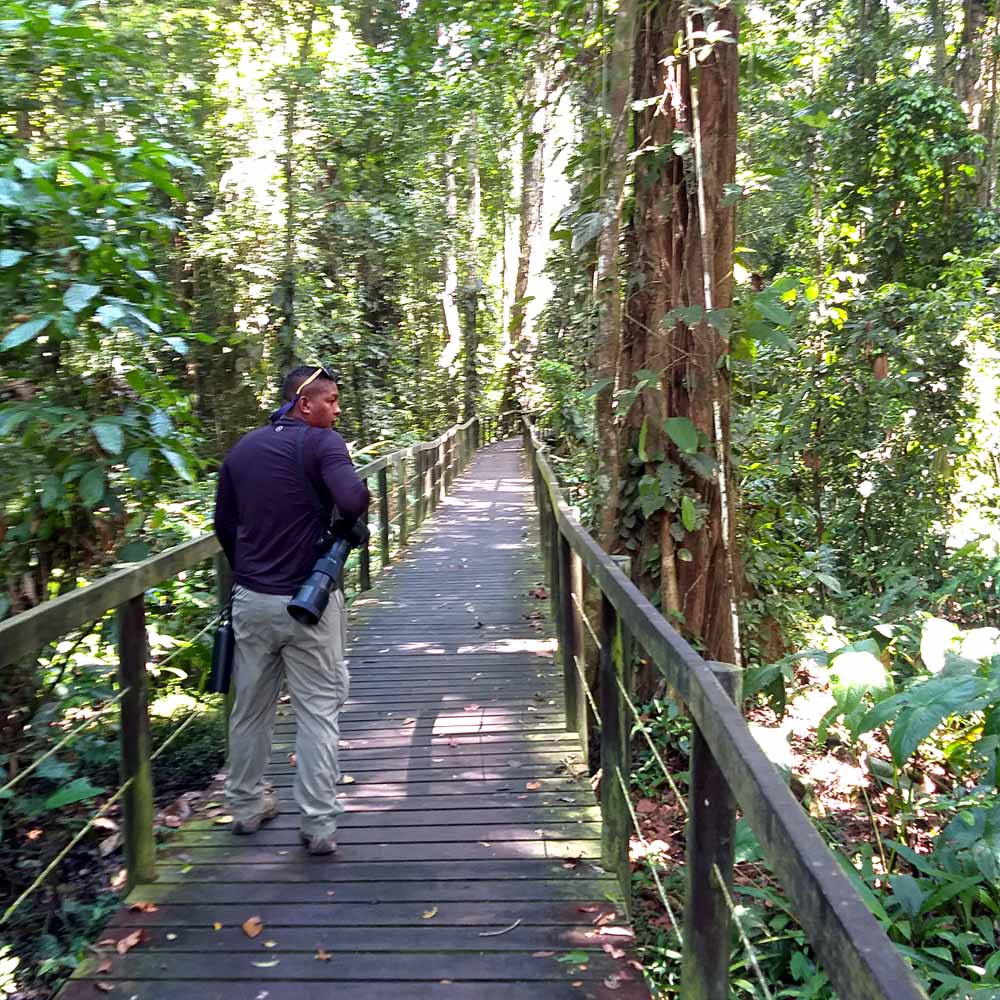
This Zebra-striped Hairstreak, Panthiades bathildis, is the third new species I photographed yesterday on the beach road behind Hotel Banana Azul in Puerto Viejo, Limón. It looks similar to another species I also got this year and last year called Togarna Hairstreak, Arawacus togarna (linked to my gallery where you can see the differences in the stripes and the orange trim on the two species). My two shots of this new species below are of the only one I saw.
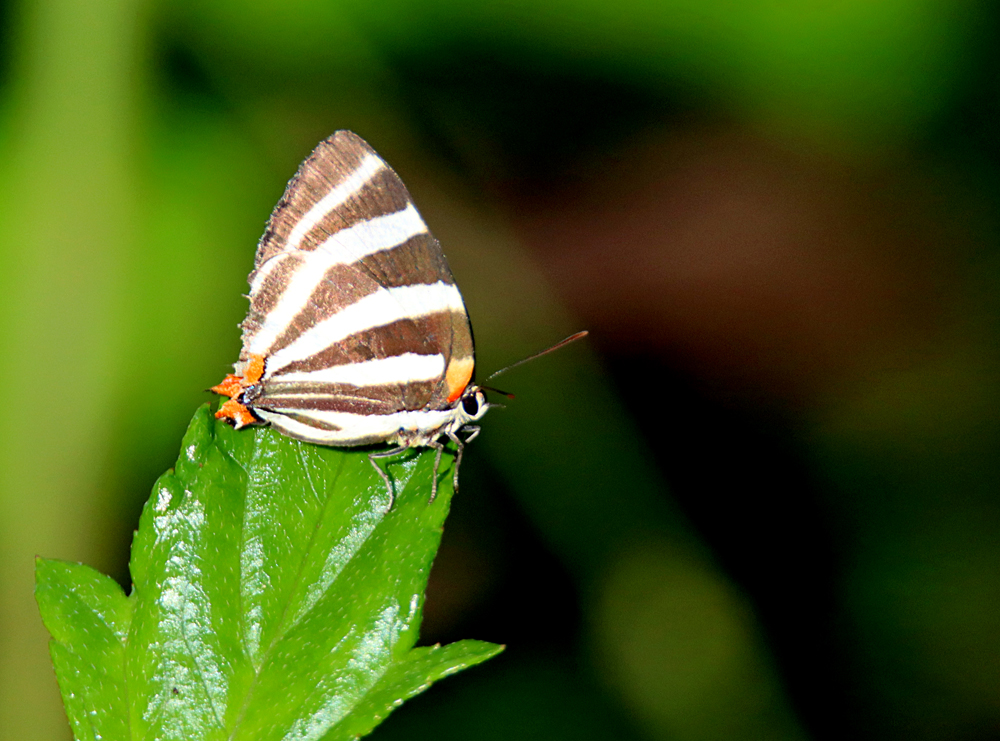
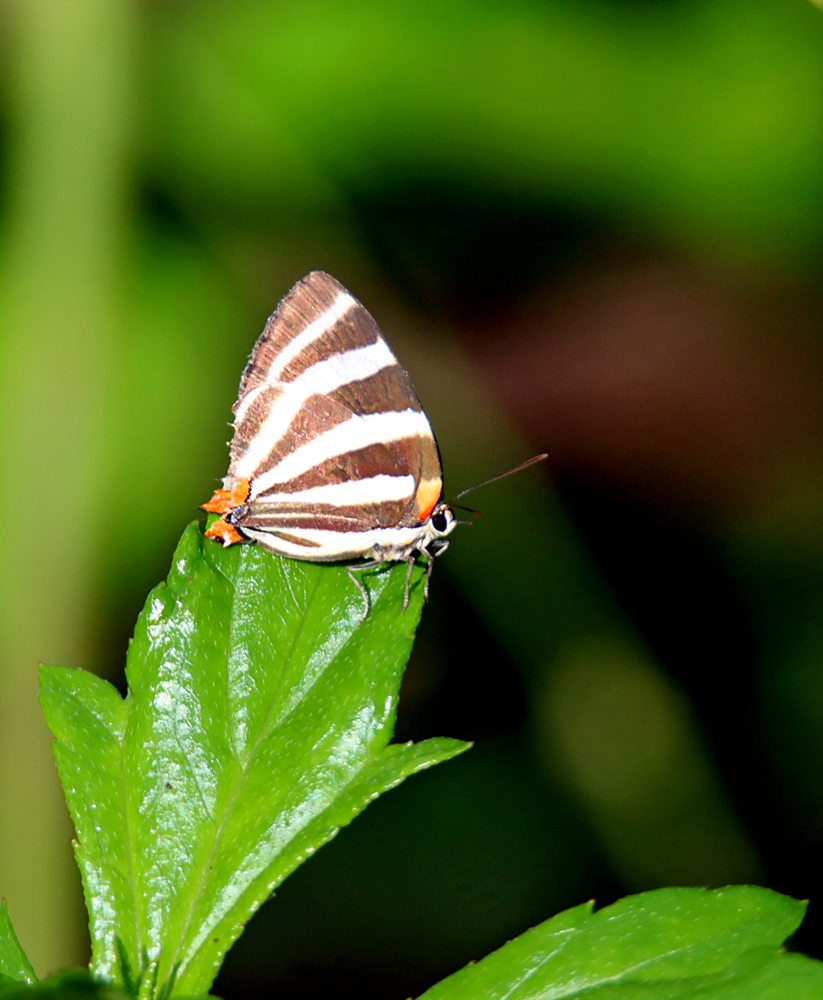
¡Pura Vida!
NOTE: This is the 3rd and last of the three new species I photographed yesterday on the beach road behind the hotel. This morning an excellent new local guide named Henis took me birding in Gandoca-Manzanillo Wildlife Refuge at 5:30 am, where I got at least one new species of birds and at least two new species of butterflies. And thus I’m beginning to get way behind on reporting from the South Caribbean of Costa Rica – but will eventually catch up! 🙂 This afternoon (Wed) and tomorrow I will continue my nature photo collections at Banana Azul, then on Friday Henis is taking me to Cahuita National Park for more wildlife photography, though they don’t open until 8 am! It’s turning out to be a great week here in the South Caribbean while many of my friends back in Atenas are getting the new ARTenas Gallería ready to open on October 4! A lot is happening in pura vida Costa Rica! 🙂
Another new species for me and if approved will be a new species for the website I volunteer with, butterflies and moths dot org. I’m requesting the addition and I’m pretty certain of the ID based first on the Jeffrey Glassberg book and then iNaturalist website. Note that I have indicated male and female in my photos, since I managed to photograph both and there is a difference! 🙂 Here’s one shot for the email version and then all four shots below that in a little gallery . . .
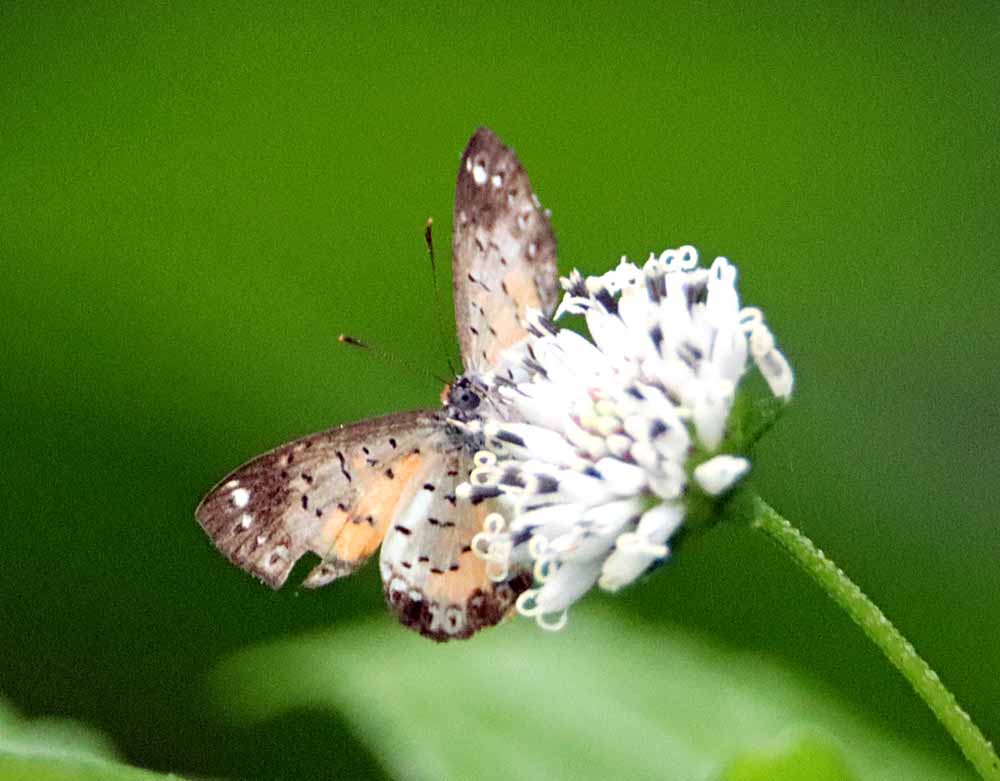
The Cabbage White is a common butterfly over most of the United States, but this is my first time to see one here in Costa Rica. The first shot of four here is not as good a photo but it solidifies the identification with that lone black spot on the upper wing and also makes it a male, since the females have two black spots! 🙂
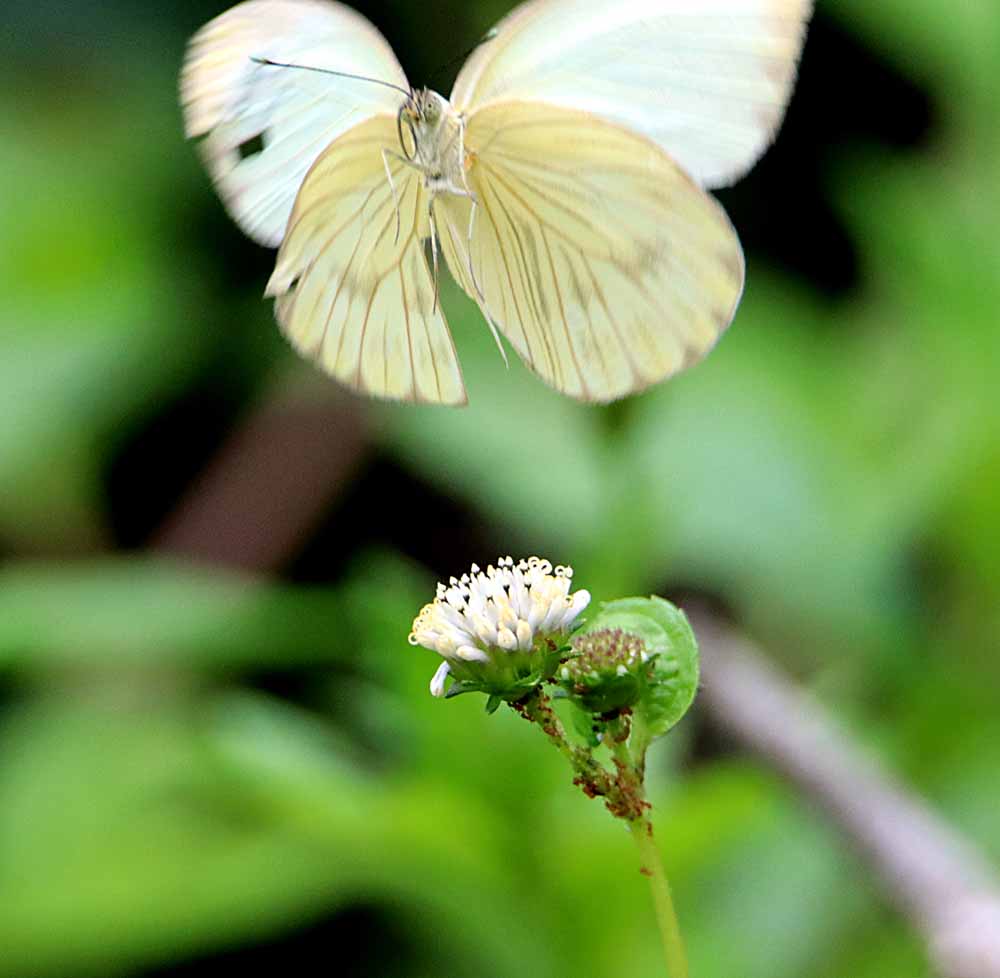
The other morning I had about four species of birds feeding on the flowers of my Cecropia or Guarumo Tree and one of them was a new species for me! A White-winged Becard, Pachyramphus polychopterus (linked to eBird). He is smaller than the Rose-throated Becard I’ve seen several of here and like that one is less colorful as a male. In this species the female is a golden orange or tan and more colorful than this male photographed here. Here’s three shots including one of him eating a caterpillar:
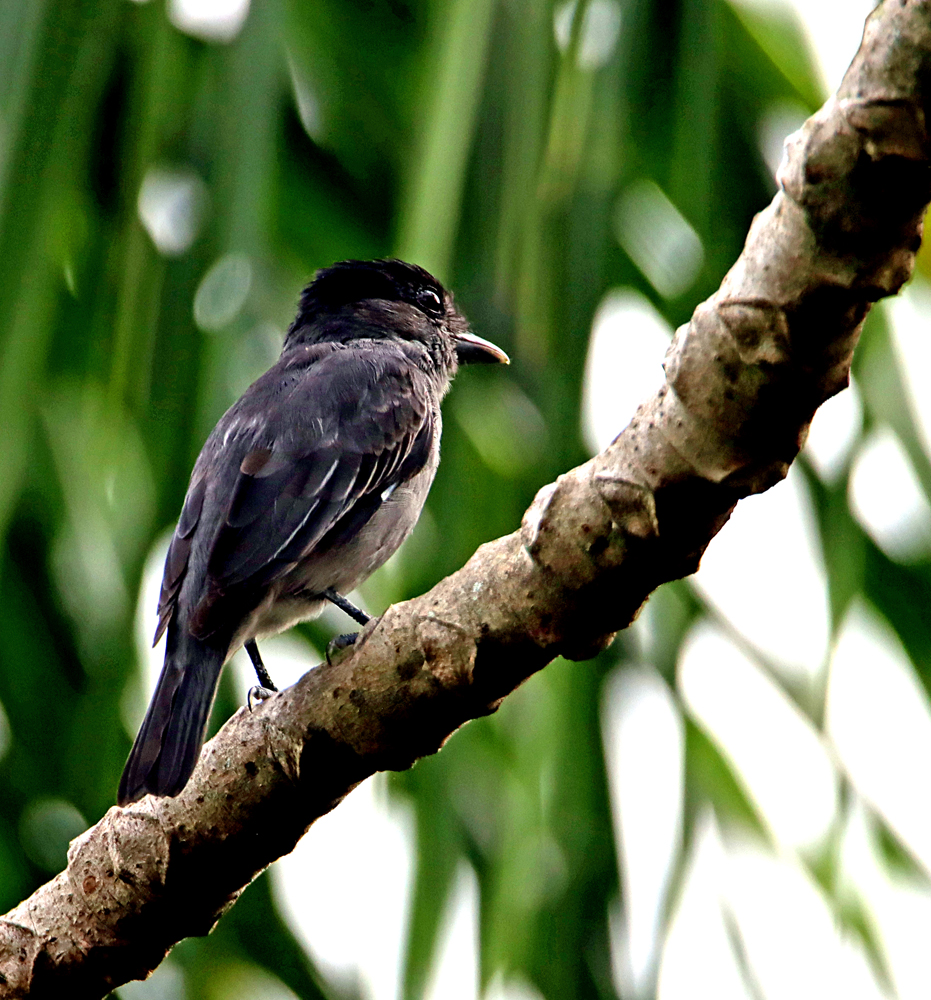
I have seen this one 4 times within the last year only in my garden. See all the different views and looks in my Tropical Checkered-Skipper GALLERY.
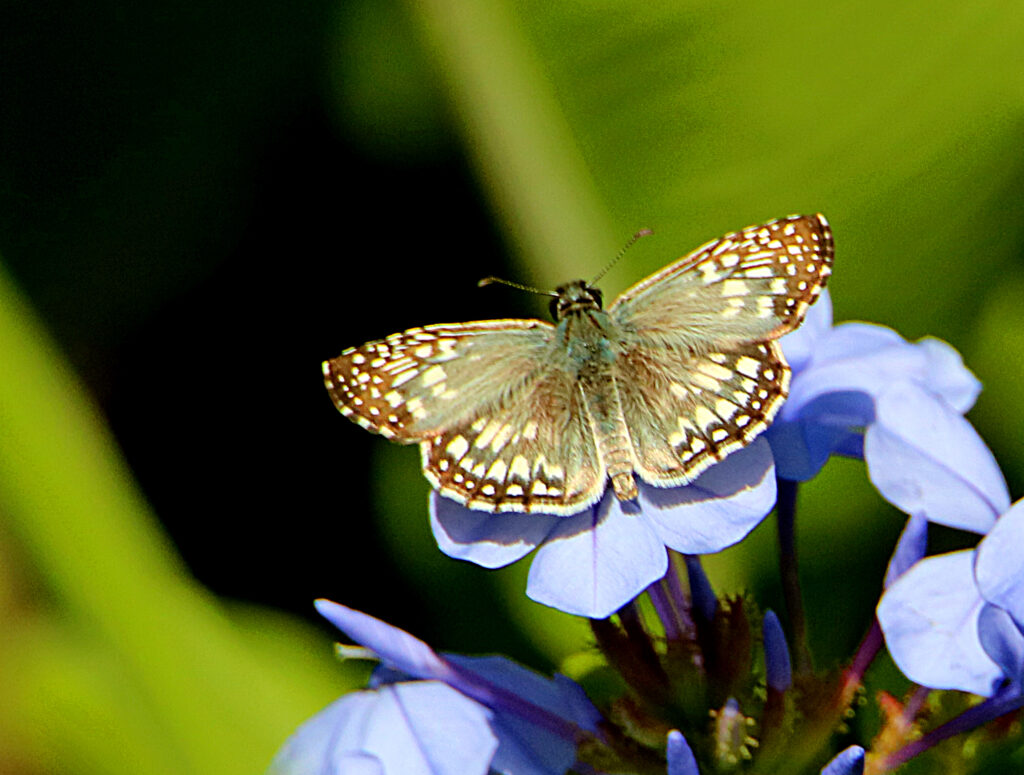
¡Pura Vida!
In fact, I have a whole GALLERY of Unidentified Skippers. And hopefully I will eventually get all of them identified, but until then, it is a large category of my photos! 🙂 Just one photo of this one today!
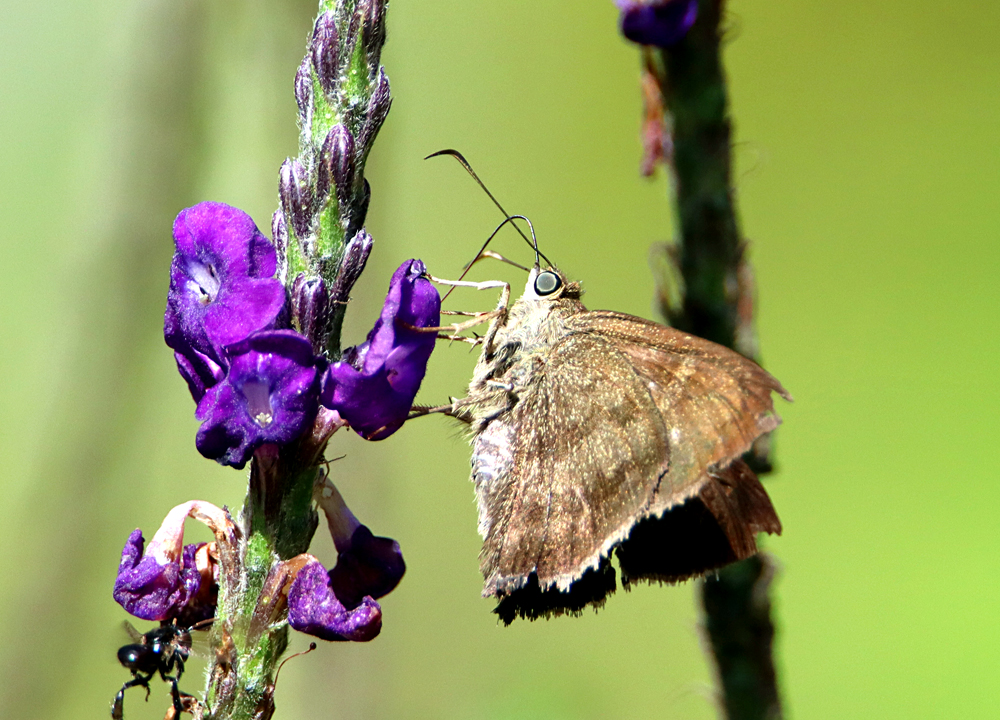
¡Pura Vida!
And Tico Times online has Good News for both the U.S. & Costa Rica with this article yesterday: Intel Investing $1.2 Billion in Costa Rica which means there will be an increase in the 3,000 employees and over 5,000 contractors already working on the research & development plus manufacturing of semiconductors here! And a lot better product than what the U.S. gets from China! 🙂 Costa Rica continues to be the technology hub of Central America and for much of all the Americas. ¡Pura vida!
In the Glassberg book, this matches what Jeffrey Glassberg calls the Bright Scintillant, a Calephelis Species, but my butterfly websites don’t list it as an official species, so I continue to list it in the next closest match, Rounded Metalmark, Calephelis perditalis, though I think it should be listed as a separate subspecies. Most of the characteristics of these two are the same with the Bright Scintillant obviously being brighter and also the border fringe is brown and white checkered, while the Rounded is one solid color. But I’m not in charge of naming butterflies, so I label them the best I can with what information I do have. 🙂 Here’s four shots of one recently in my garden and be aware that he is tiny, only a little larger than my thumbnail . . .
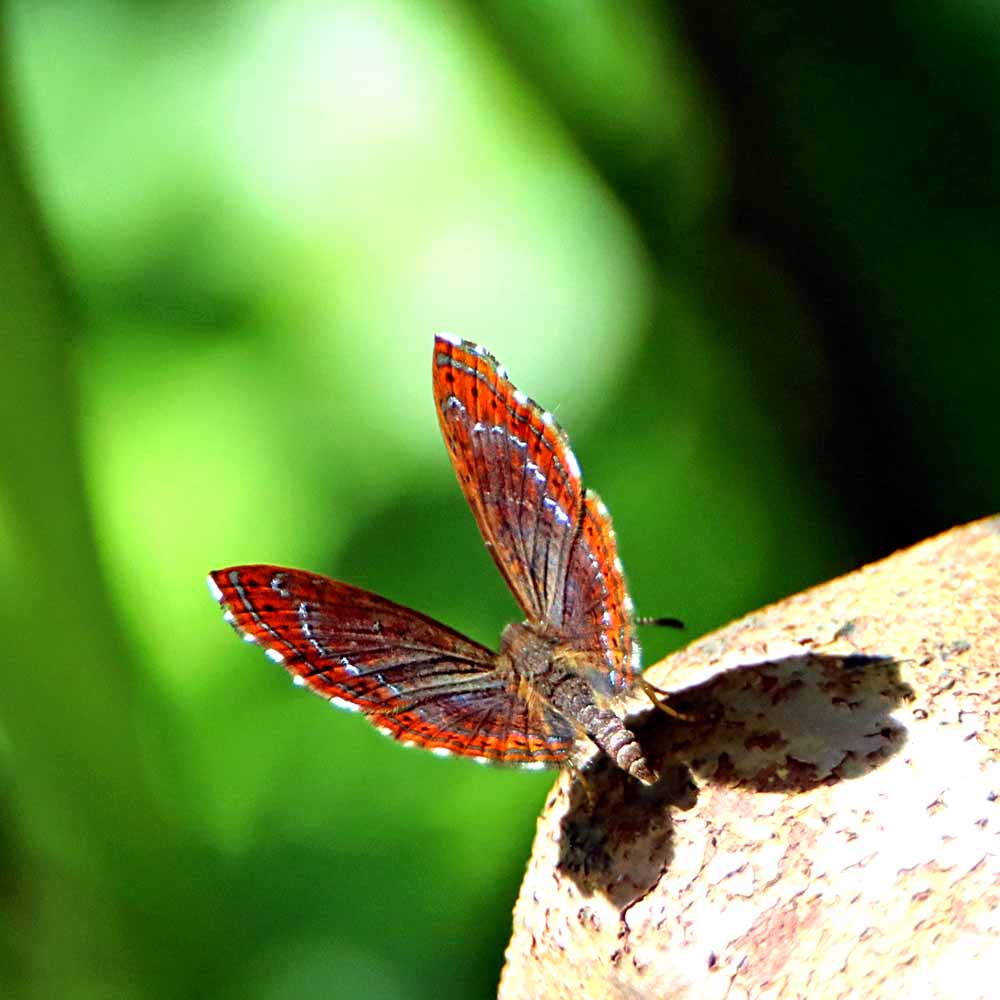
That’s not a carnival ride or some crazy new dance, but the common name for a Skipper Butterfly with the scientific name of Polites vibex, Whirlabout. And I know you probably think these two photos are of different butterflies, and though they are of different individuals of different sizes, they are the same species, with the folded wings the lighter color and the open wings orange and dark brown for males and all-brown for females. The other times I have photographed one in my garden, he looks a little darker or brighter orange than these, as you can see in my Whirlabout Gallery, but I’m fairly confident of my ID each time. There is no end to new discoveries with butterflies! 🙂
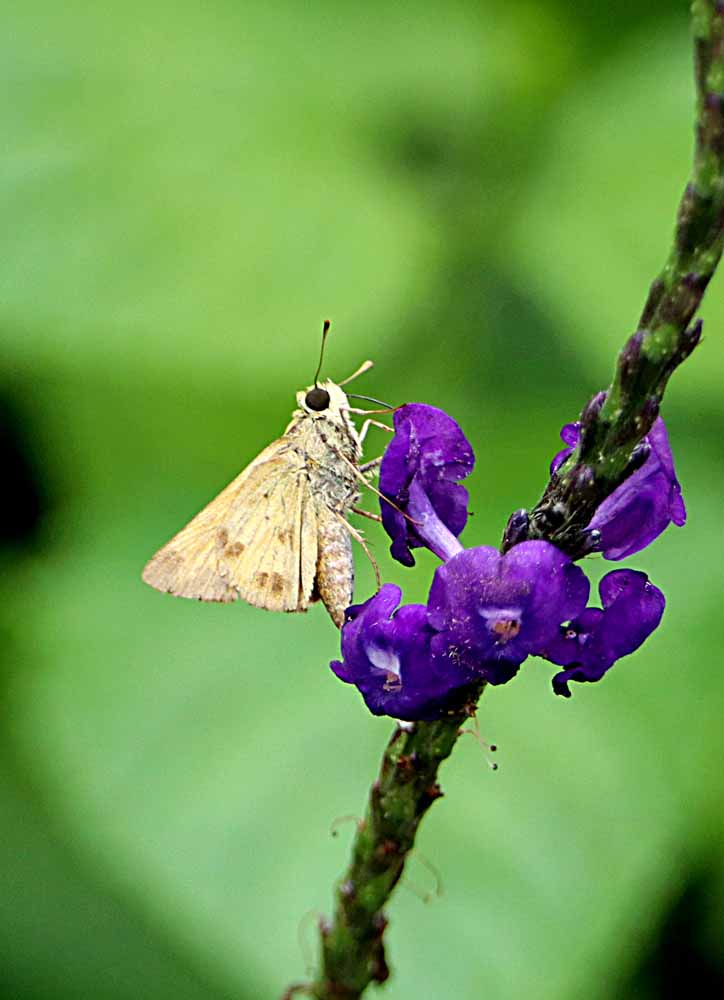
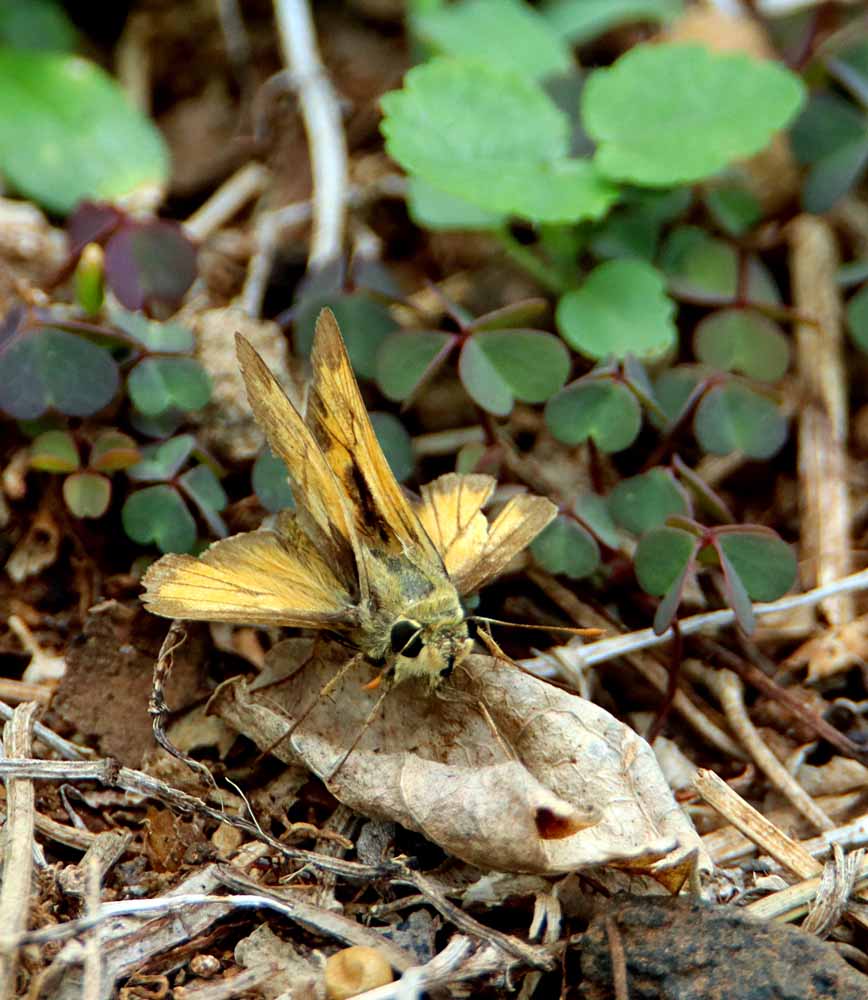
¡Pura Vida!